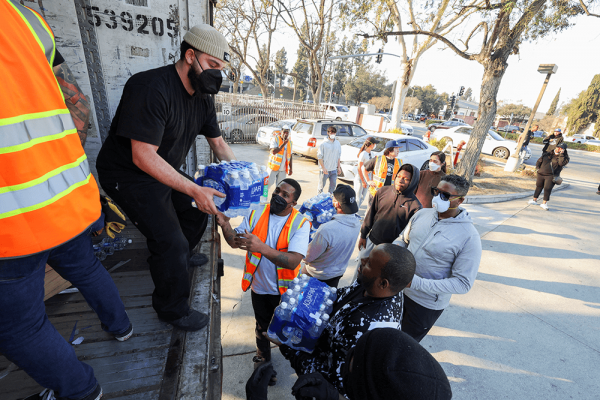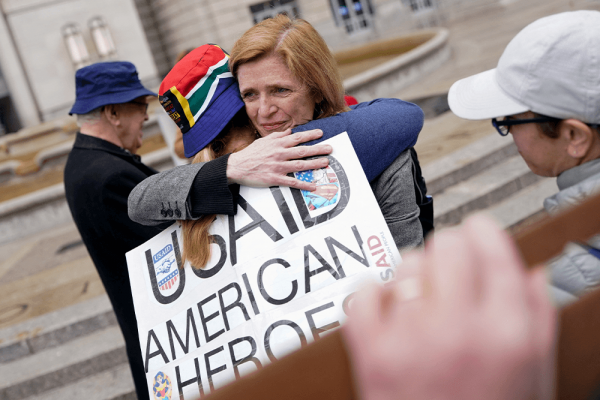Following his election as leader of the ruling Conservative Party, Boris Johnson became the prime minister of the U.K. on July 24, 2019.
Johnson, or 'Boris' as he is locally known, is a household name in the U.K., with his ruffled hair, acerbic humor, and buffoon-like mannerisms that have, in the past, got him stuck on a zipwire at an Olympic event in London.
On the day he became prime minister, his speech was characteristic of his public persona. He joked that the acronym of the mantra of his campaign — "Deliver Brexit, Unite the country and Defeat Jeremy Corbyn" — spelled “dud" but many had forgotten “the final ‘E’," he said. "E for 'Energize.' And I say to all the doubters, 'Dude! We are going to energize the country!'"
But as silly as some of Johnson's stunts and statements have been, there is an equally — if not more — troubling side to his temperament. He has been known to routinely make contentious remarks about religious and ethnic minorities as well as LGBTQ people that hint at underlying racist and homophobic beliefs. He was a main figure in the 2016 Leave Campaign (Brexit), has intensified fear of foreigners, and has used derogatory names to describe black people, Muslim women, and gay men.
Faiza Mahmood, BAME Officer of London Young Labour, the London-wide youth branch of the Labour Party told Sojourners that statements that Johnson has made “legitimize racism” and are “explicitly bigoted towards minorities.”
Mahmood explained that issues such as increasing wealth inequality, and the scapegoating of migrants and refugees, set against the backdrop of the migration ‘crisis’, have led to increasing hostility and incidents of hate crime under the Tories — majority white (97 per cent) and male (71 percent) — members or supporters of U.K.’s Conservative Party.
In the recent past, the Conservative Party has routinely come under fire for pushing forth policies concerning the rights of minorities that were viewed by many as intolerant.
There were the ‘go home’ vans, the indefinite detentions and deportations of LGBTQ+ immigrants, the ‘Windrush scandal’ where people who had arrived in the U.K. before 1973 were wrongly detained, their access to legal aid cut, leading to some being deported and others threatened with deportation, and the ‘hostile environment policy’ where administrative and legislative measures were introduced with a specific aim to make staying in the U.K. difficult for immigrants.
“There can be no doubt that Boris Johnson played on economic anxieties to invoke xenophobia throughout the 2016 Leave campaign,” Mahmood said.
Brexit was fueled in part by a disdain for the terms and conditions being imposed on the U.K. by the European Union (E.U.) and in part by a growing anti-immigrant sentiment, a slim majority (51.89 percent) voted in June 2016 for the U.K. to end its membership with the E.U.
But Brexit was also disastrous for the LGBTQ community. According to a recent report from the Crime Survey of England and Wales (2017-18), there has been a more than 50 percent increase in homophobic and transphobic hate crimes since 2014.
Also, many of the achievements of the LGBTQ community over the last two to three decades — like an equal age of consent, the right to live freely from discrimination at work and when buying goods and services, and the right to join and serve in the Armed Forces — have been battles with the British Government which have been fought and won by individuals taking their cases to the European Court of Justice.
“Boris's election has filled me with fear,” Ezra Stripe, a queer Muslim person living in the U.K. said. “I'm frightened for the rollback of my rights, as a queer person and a trans person. I'm frightened of rhetoric, hate crime, and governmental legislation against Muslims and specifically Muslim women wearing head and face coverings — which I do. I'm frightened of Brexit, of increasing hate crime and building far-right actions. I fear for everyone like me, and everyone else who is marginalized. This will not be a good government for us.”
Stripe also said that U.K. society likes to believe it accepts diversity, and is somewhat of a melting pot, but the reality is worse — especially for people whose identities fall at the intersection of different marginalized groups — Muslim and LGBTQ, LGBTQ and disabled, a woman and a person of color, and other intersections of identities.
Berkeley Wilde, director at Diversity Trust, a Community Interest Company that aims at promoting equality, diversity, and inclusion in the U.K., said that they have noted “a rise in populism, nationalism, and hate crime directed against minority and equalities communities since the 2016 Brexit Referendum result.”
Equalities communities are communities that are protected by the Equality Act on the basis of race, religion or belief, sex, sexual orientation, and gender reassignment.
“Last year alone saw a 17 percent increase across all hate crimes reported with a 81 percent increase in hate crimes reportedly directed at transgender people,” Wilde said.
He also explained that Brexit created a divide within societies, communities, workplaces, and families across the U.K.
“The U.K. is divided in half with approximately 50 percent wanting to leave the EU and 50 percent wanting to remain in the E.U. This divide goes across all protected characteristics and groups including faith groups and communities and ethnic groups and communities.”
As for what minorities in the U.K. hope for under the leadership of the new prime minister, Wilde said that his organization looks forward to working with the government for the implementation of the Criminal Justice Act 2003 and the Gender Recognition Act 2004 that will increase the protection provided to vulnerable communities that are most affected because of the political changes the U.K. has seen in the recent past.
“As an organization we will continue to educate and empower the communities and organizations we work with to end hate crime and stop discrimination,” Wilde said, adding that the organization looks forward to working with the government to bring about social and legal change.
Got something to say about what you're reading? We value your feedback!







